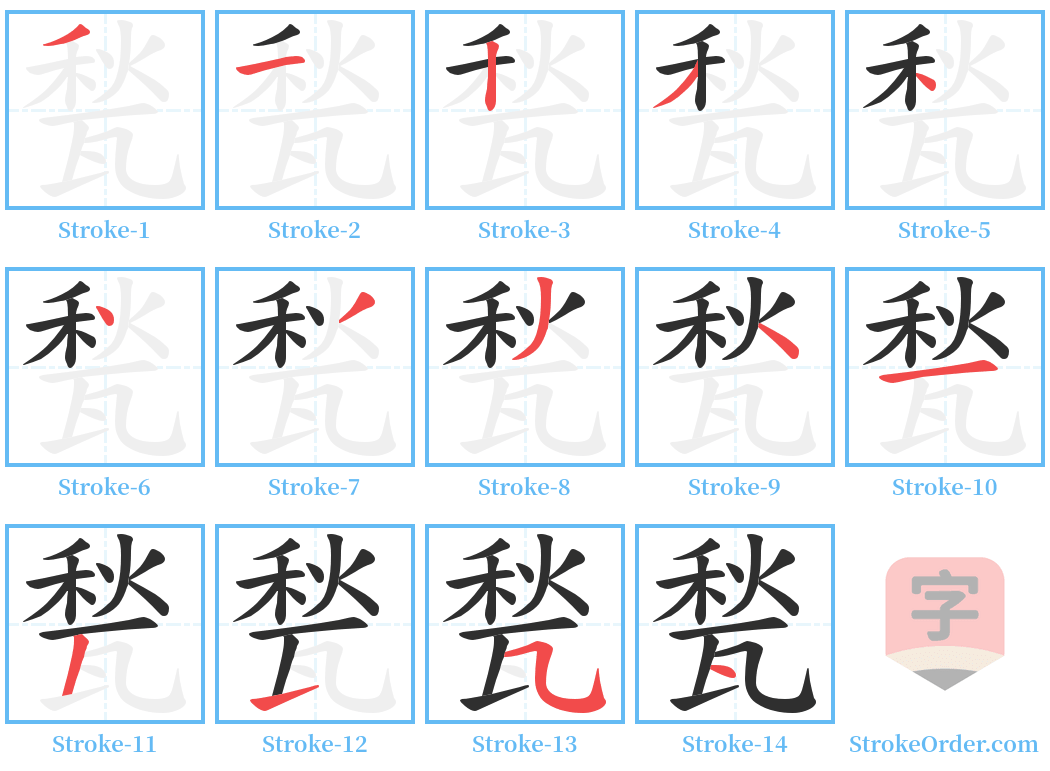甃 Stroke Order
Animated Stroke Order of 甃

Stroke Order Diagrams for 甃

Information of 甃
Pinyin
zhòu
Radical
瓦
Strokes
13 strokes
Usage
★★
Definition
甃 [zhòu]
1. 砖砌的井壁。
(Wall of brick-well)
2. 井。
(Well)
3. 砖。
(Brick)
4. 砌,垒。
(Build)
5. 圆的。
(Round)
引
1. 《说文》:甃,井壁也。从瓦,秋声。
(From "Shuowen": 甃 refers to the wall of a well, composed of tiles, with a sound of autumn.)
2. 唐·杜荀鹤《旅泊遇郡中叛乱示同志》:古寺拆为修寨木,荒坟开作甃城砖。
(Tang Dynasty - Du Xunhe: The ancient temple was dismantled for building a fort, and the abandoned tombs were made into bricks for walls.)
例
又如: 甃甓(井壁); 甃石(垒石为壁).
(For example: 甃甓 (well wall); 甃石 (stone wall).)
名 〈动〉
1. 砌。以砖修井。
(Build a well with bricks)
引
1. 甃,亦治也。以砖垒井,修井之坯,谓之为甃。——《易·井》孔颖达疏引
(甃 also means to manage; building a well with bricks is referred to as 甃, as per the comment on the Book of Changes, "Well".)
2. 《易·井》:甃无咎。干注:“以砖垒井曰甃。”
(In the Book of Changes: "甃 is without blame". The commentary states: "Building a well with bricks is called 甃.")
2. 修盖瓦沟;砌垒砖石。
(Build)
引
1. 《管子》:甃屋行水。
(In "Guanzi": Build walls for water to flow.)
2. 《醒世恒言》:起百尺琉璃宝殿,甃九层白玉瑶台。
(In "Xingshi Hengyan": Erect a hundred-foot glazed treasure hall and build a nine-layer white jade platform.)
例
又如: 甃石(砌石;垒石为壁); 甃地(以砖、石等砌地); 甃城(筑城;修城); 甃理(修治).
(For example: 甃石 (to build a stone wall); 甃地 (to build with bricks or stones); 甃城 (to construct or repair a city); 甃理 (to manage or repair).)